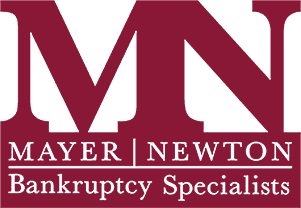Americans nationwide are already struggling with home foreclosures, harsh bank and credit card fees, and now are falling to the so-called “debt settlement” schemes that promise to make clients debt free in a relatively short period of time. Unfortunately, most consumers who pursue debt settlement services find themselves facing not relief but even more financial losses.
Even the industry acknowledges though not in its constant radio, television and online advertising that debt settlement schemes fail to work in two-thirds of clients. Federal and state officials put the debt settlement success rate lower.
Common Debt Settlement Scams to Avoid
Here are some common schemes that debt settlement companies use to prey on debtors:
- Promises that the unsecured debts can be paid off for pennies on the dollar.
- Require substantial monthly service fees and demand payment of a percentage of what they have supposedly saved you.
- Tell you to stop making payments or stop communicating with your creditors.
- Suggest that there is only a small likelihood that you will be sued by creditors.
- Demand upfront, non-refundable payment for no services provided yet.
- Offers a one-size-fits-all solutions for your debt.
Reasons to Avoid Debt Settlement
The bottom line is that debt settlement often does not benefit debtors. There are many shady companies out there who do not offer legitimate services and can only make your debts worse.
Here are red flags to debt settlement:
- Debt settlement schemes encourage consumers to default on their debt. Consequently, they end up with larger fees, penalties, higher interest rates and aggressive collection calls, plus danger of garnishment.
- Debt settlement often makes a bad problem even worse. Once defaulting on the debt the debt burden rises quickly. As accumulating penalties and interest charges inflate the consumer’s debt-load, creditors begin collection efforts and many eventually sue. If any of the creditors refuse to settle, the consumer is left worse off than when they began.
- The painful bottom line is that most consumers lose the debt settlement gamble.
- Even successful debt settlements can come with a high price. Tax liability. The amount of savings realized from debt settlement can be considered taxable income.
- The problem is not limited to bad actors since the debt settlement approach itself is flawed. These settlement companies are a trap because they require the client to breach their contract with the creditors.
If you are facing excessive debt, talk to a bankruptcy attorney about your situation. Bankruptcy may be a more effective method than debt settlement because you can take advantage of legal protections that debt settlement cannot. While bankruptcy can be scary, it can be a great way to get rid of your debt and help you start a clean slate.

